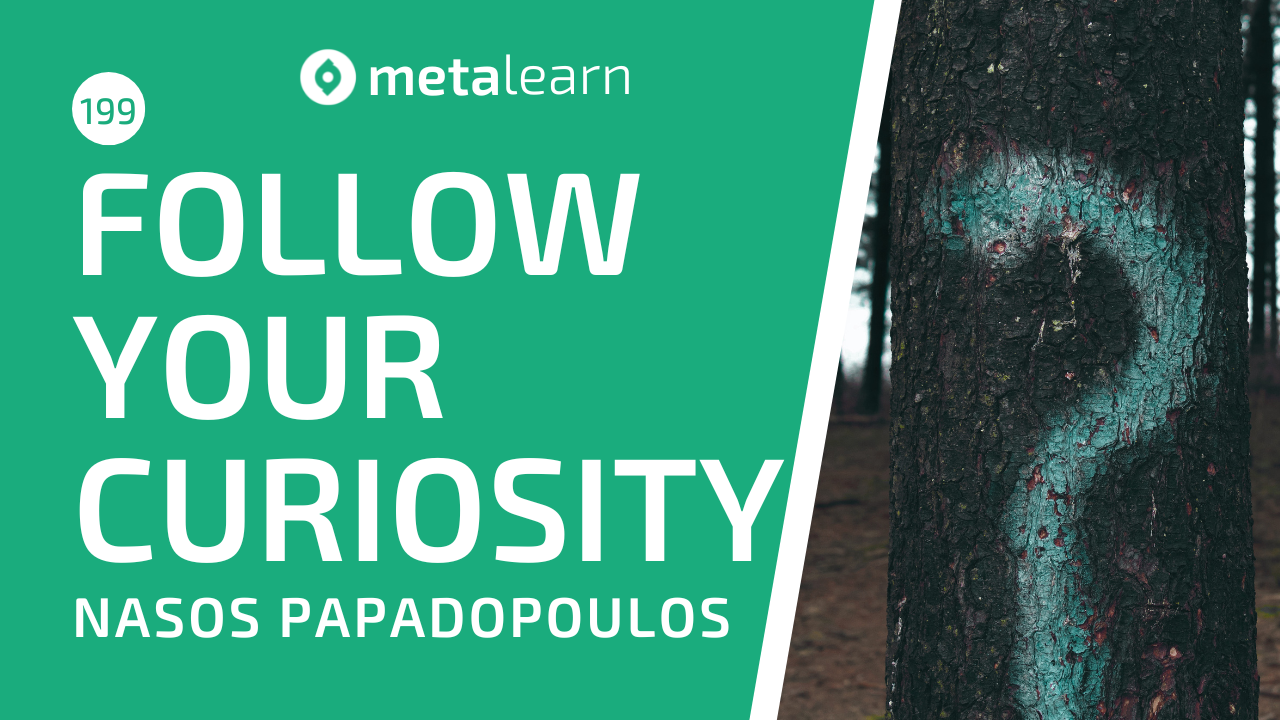ML199: Questions, Curiosity & The Death of Expertise

In this episode Nasos & Andrea discuss: how to ask great questions, the role of curiosity in progress and the impact of modern media and technology on expertise, sensemaking and democracy.
Show Notes
- Why is asking questions a uniquely human trait? [02:15]
- Why was Alex the Parrot a remarkable exception to the ideas of curiosity and human nature? [02:37]
- How does asking questions crucial to human knowledge? [03:42]
- Why does asking questions reduce in school? How are questions and curiosity discouraged as people grow up? [08:25]
- How can asking questions be encouraged and prioritised in school? [09:31]
- What was Nasos' experience with asking questions as he was growing up? What was the moment in university when his curiosity was reignited? [12:00]
- How does Nasos weigh his questions between his personal curiosities and the other person’s practical knowledge and expertise? [14:40]
- Why is there a stigma around curiosity and asking questions? [16:27]
- How can one reframe other people’s perceptions when asking questions? [17:59]
- Why is it important to make questions an exchange rather than a one-way inquiry? [19:44]
- How have traditional sources of information been devalued by the rise of the internet? [21:08]
- Does accessibility of knowledge equate to more informed individuals? [25:44]
- What are some highly consequential implications of the death of expertise? [27:55]
- What are things that contribute to systemic disinformation? How can asking questions counter misinformation? [29:05]
- How can electing unaccountable authorities affect how society values scientific research and process? [33:14]
- Why is being wrong seen as a moral failure? How can one navigate the uncertainty of the world without depending on unreliable sources? [38:58]
- What does Nasos think about China’s recent regulations about financial and medical information? [40:54]
- How can society find a middle ground for making information accessible and having experts and authorities be the primary source? [43:25]
- Who are qualified to answer the big questions in life? How can one answer the big questions themselves? [46:06]
- How can asking questions be a useful tool in learning about the world and one’s personal experiences and philosophical understanding? [49:50]
- What are questions that Nasos asks himself to help him think more critically? [57:14]
- How does one apply knowledge and information once questions are answered? [01:00:21]
- Why is it crucial to alternate exploration and exploitation? How can sticking to only one present a less comprehensive kind of learning? [01:07:27]
- What has been Andrea’s experience with the explore-exploit tradeoff? [01:11:49]
- What are the best kinds of questions? [01:16:33]
- Closing remarks [01:17:21]

